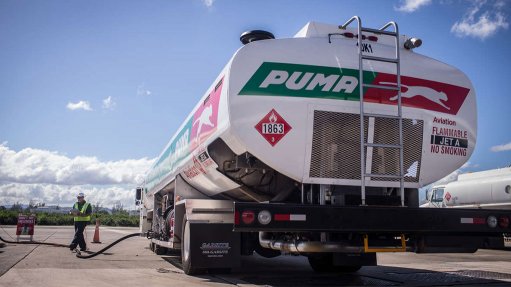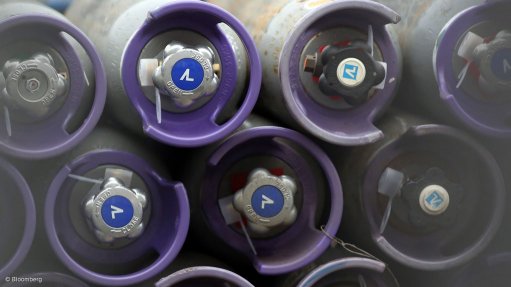Software to help track bread tag collections for wheelchair initiative
A pilot phase for polystyrene recycling software PolyNet is being launched for the Bread Tags for Wheelchairs initiative, facilitated by industry body the Polystyrene Packaging Council (PSPC) of South Africa.
The initiative sees people collecting bread packet tags, which are then sold to buy new wheelchairs. For every one kilogram of bread tags collected, R6 is raised.
Schools and businesses involved in the initiative act as collection points for the bread tags. Companies who recycle the polystyrene bread tags into other products buy the bread tags at R6/kg from the collectors. The money raised by the collectors is then used to buy new wheelchairs.
The software will be used for other existing recycling projects and for future projects once it has passed the pilot phase, says PSPC director Adri Spangenberg.
“The software application, which has been installed on the computers at Doxa Deo Xanadu School, in Hartbeespoort, enables the coordinator to capture all the bread tags collected. The software then informs the bread tag collector assigned to the school when enough tags have been collected. It also notifies wheelchair manufacturers and buyers that there are bread tags in transit,” she says.
The collection process has been automated, owing to the substantial growth of the project and the difficulties in handling the resulting increase in administrative work, Spangenberg explains.
“There are 600 coordinators or gatherers across South Africa, such as locally based financial services provider Nedbank’s Houghton branch. Nedbank would like to implement the Bread Tags for Wheelchairs initiative at all its branches, which would require that the PolyNet software be installed at every branch.
“Once users have captured the amount of bread tags collected, the PSPC will then put them in contact with a collector or buyer,” Spangenberg notes.
The software was developed specifically for the PSPC by locally based software developing company Mastertech Computers and will be available for download by registered collectors and coordinators from the PSPC website once the pilot phase has been completed, she says.
High-impact and expanded polystyrene are the most common types of polystyrene. High-impact polystyrene looks like ordinary plastic and is used for yoghurt packaging, for example, and expanded polystyrene is used for meat and vegetable packaging.
Owing to the varieties of polystyrene, Spangenberg says, there are also several ways to recycle the material. “Bread tags, for example, will be used to manufacture seedling trays,” she notes.
The PSPC is also involved in the Tutudesk initiative, which provides children from disadvantaged communities with a portable desk on which they can do schoolwork on their laps. These desks are made from recycled high-impact polystyrene like cutlery and bread tags, she adds.
“Clean white expanded polystyrene is also recycled into picture frames, cornices and skirtings. Contaminated expanded poly-styrene, such as those of meat trays, would be recycled into a new construction-based prod- uct patented by the University of Pretoria, where the polystyrene is hammer-milled and mixed with cement to make wall panels.
“The first factory for this new product is in Heidelberg, with another being built in Pretoria. The initiative intends to have four of these factories in each province,” she says.
Polystyrene can be recycled up to 20 times before losing its integrity as a product, says Spangenberg. However, it cannot be recycled into food packaging, which is why the council had to consider alternative products that can be manufactured using recycled polystyrene.
“Polystyrene can only be reused in food applications if it goes through an expensive cleaning process,” says Spangenberg, adding that the volumes of polystyrene being collected do not justify this practice at present.
She notes that it is important to recycle polystyrene, as it is a valuable resource that does not release any harmful gases and if it is discarded at landfill sites it remains there forever. It is used by several end markets, such as the construction industry for its insulating properties. Polystyrene also has the smallest carbon footprint of any packaging material, as it comprises 96% air and 4% product.
Spangenberg notes that South Africa recycles only about 14% of industry products using polystyrene, including protective white polystyrene.
The PSPC aims to increase the amount of polystyrene recycled in South Africa by 10% a year. The challenge is that there are few municipalities that separate recyclable materials, such as glass, paper and poly-styrene, at the source, which makes it difficult to find the clean material, she highlights.
However, having new products developed from recycled polystyrene will increase the demand for polystyrene and, therefore, increase recycling activities in the country, says Spangenberg.
Comments
Press Office
Announcements
What's On
Subscribe to improve your user experience...
Option 1 (equivalent of R125 a month):
Receive a weekly copy of Creamer Media's Engineering News & Mining Weekly magazine
(print copy for those in South Africa and e-magazine for those outside of South Africa)
Receive daily email newsletters
Access to full search results
Access archive of magazine back copies
Access to Projects in Progress
Access to ONE Research Report of your choice in PDF format
Option 2 (equivalent of R375 a month):
All benefits from Option 1
PLUS
Access to Creamer Media's Research Channel Africa for ALL Research Reports, in PDF format, on various industrial and mining sectors
including Electricity; Water; Energy Transition; Hydrogen; Roads, Rail and Ports; Coal; Gold; Platinum; Battery Metals; etc.
Already a subscriber?
Forgotten your password?
Receive weekly copy of Creamer Media's Engineering News & Mining Weekly magazine (print copy for those in South Africa and e-magazine for those outside of South Africa)
➕
Recieve daily email newsletters
➕
Access to full search results
➕
Access archive of magazine back copies
➕
Access to Projects in Progress
➕
Access to ONE Research Report of your choice in PDF format
RESEARCH CHANNEL AFRICA
R4500 (equivalent of R375 a month)
SUBSCRIBEAll benefits from Option 1
➕
Access to Creamer Media's Research Channel Africa for ALL Research Reports on various industrial and mining sectors, in PDF format, including on:
Electricity
➕
Water
➕
Energy Transition
➕
Hydrogen
➕
Roads, Rail and Ports
➕
Coal
➕
Gold
➕
Platinum
➕
Battery Metals
➕
etc.
Receive all benefits from Option 1 or Option 2 delivered to numerous people at your company
➕
Multiple User names and Passwords for simultaneous log-ins
➕
Intranet integration access to all in your organisation


















